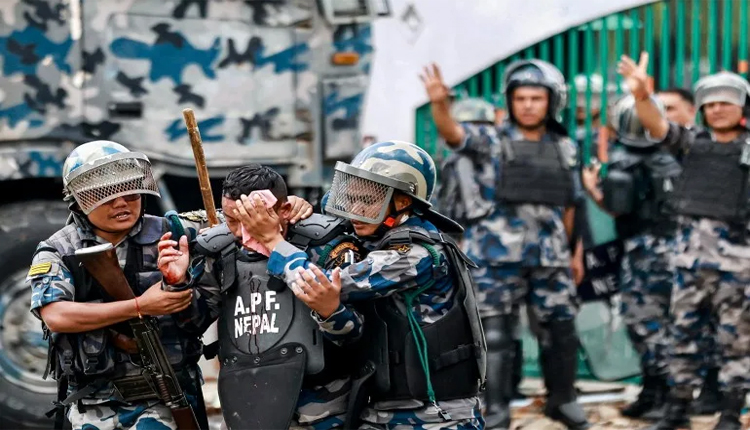Kathamandu: Nepal is suffering from what might be the most fatal demonstrations in its recent past, as the country has been under the impact of violence for more than 48 hours, which has caused devastation and mourning.
The heated social media discussion and attempts to regulate street rage lasted only a brief period, after which the discord, driven by the tech-savvy Gen Z, escalated into a protest aimed at toppling the very foundations of power. The protesters, after setting fire to the Parliament building, the Supreme Court, and Prime Minister KP Sharma Oli’s residence along with the other buildings, are deeply and loudly shouting out for his sudden resignation, promising to stop corruption, save the economy, and ease the people’s suffering.
The hysteria in places such as Kathmandu and Birgunj, which is the busiest trade gateway between Nepal and India, has gone out of control, and the violence has spread over to the streets. In the economic nerve centre, which is Birgunj, linking India and Nepal, the streets had been turned into battlegrounds. On the streets were cars set on fire, and the barricades were there with burning tyres; the young rioters who came with sticks and stones rampaged and climbed the poles in order to cut the power lines, which made the places dark.
The Nepali Army has been deployed extensively to quiet the situation and is patrolling the streets most affected by the unrest. Nevertheless, the demonstrators are still going about shouting slogans such as “Oli government, resign!” at the top of their voices, thus showing their opposition to the alleged injustices in one strong voice.
The situation is so terrible that the Radicals describe a scenario in which they could not be more bold. Gen Z activists provoked the police station in the Birgunj area by gathering a flock of motorcycles and torching them right at the precinct, with the fire shooting high up, just as the police force was standing, watching it, without being able to perform their duty. Schools and colleges, as well as shops, have all been closed, and the Birgunj-Raxaul border, necessary for cross-border trade, is at a halt with no vehicles or people allowed through. A trader complained about the situation: “I was going to Adeshnagar to work; this place is now blocked. What to do if we are not allowed to continue on the way to the shop? Business is at a standstill; even going for medicine has become very difficult,” he said angrily.
Not only has the violence gutted the Birgunj Municipal Corporation office, but it has also destroyed 15 vehicles that were housed there and turned the documents into ashes.
The anger of the people is what that uprising is based upon, which is also reflected in what the protesters are sharing. A person who came from Chennai to enrol his son but instead got involved in the protest said the government’s decision to block social media was senseless:”By blocking WhatsApp and Facebook what we got? Our lifelines are these. So many have died; who will compensate?” Another voice clearly disliked the repression: “Only the abuses under Oli’s reign were many. If the authorities cared to listen to the voices peacefully, this would not have happened. So why are shots being fired at schoolkids? We are the ones who are forced into this; when we hold processions, guns are fired at us, and our posts get banned.” The death toll is reported to be in the dozens, of which there are those innocents who lost their lives in the middle of the gunfire. It is Nepal’s deadliest protest since the 2006 democracy movement.
Usually disregarded as keyboard warriors, the Gen Z vanguard have in fact become a very potent force by effectively mixing their online and offline actions. Questions on the outcome if Oli’s administration manages to calm down the fire without further bloodshed or if this youth-led inferno is going to reshape Nepal’s fragile politics thave been coming up nonstop while the country is slowly falling? As neighbouring countries, especially India, would be affected by these ripple effects that will soon hit them with the borders being locked and the economy at a standstill.



Comments are closed.